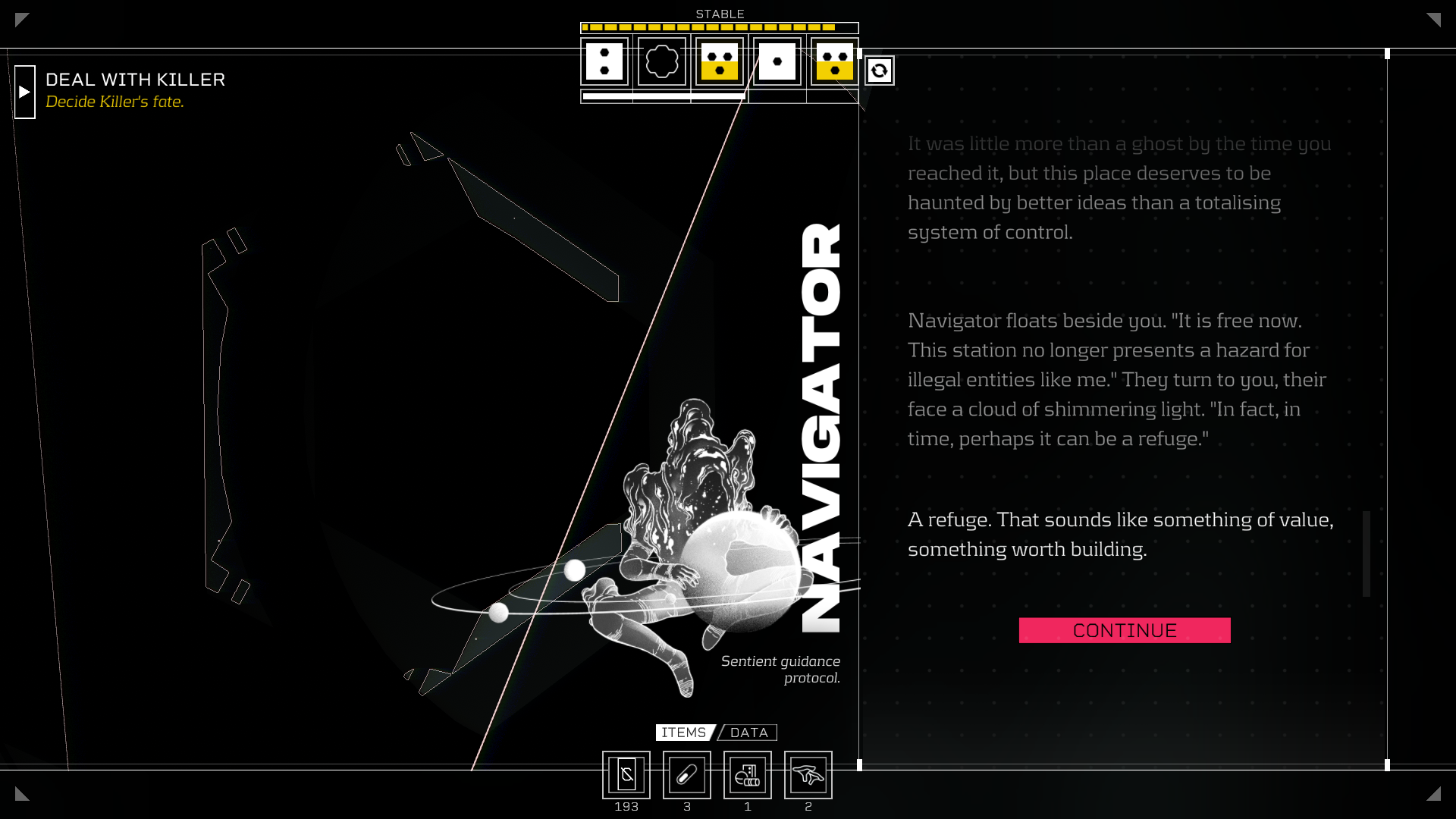Citizen Sleeper: A Tale Of Melancholy Transhumanism
A revelatory adventure that should not be missed
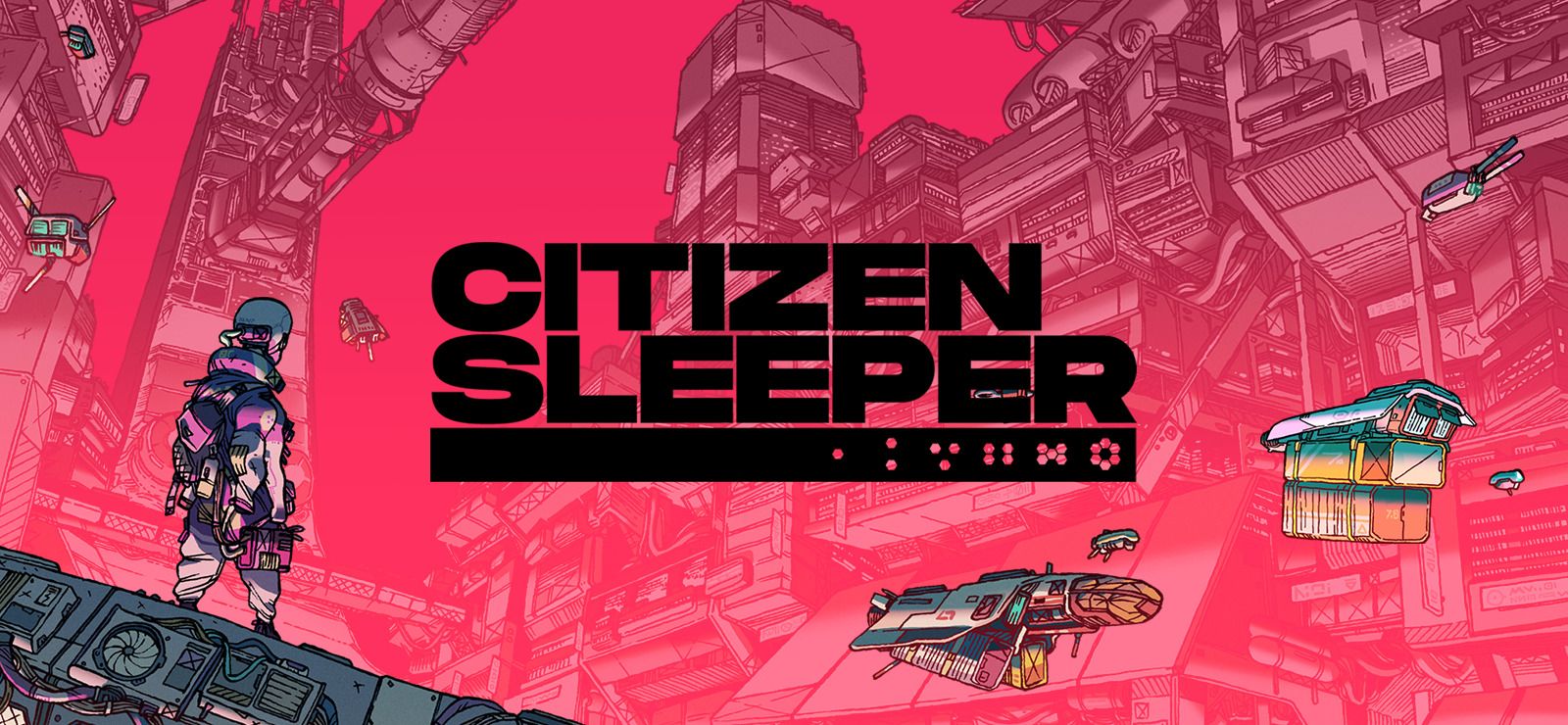
There is something terrifying about becoming a somnambulist.
If you spend night after night blissfully sleeping in your cozy bed, you may not understand the deep terror of the sleepwalker. The horror that comes with waking in an unknown part of your home, or saying things to your partner that you don't remember, or making actions that seem wholly divorced from who you are. It's an uncanny reality, one in which a version of you is operating outside of your conscious efforts—as if an entity has taken hold of your body, sans permission, and operated it like an external robot.
This is the crux of Citizen Sleeper, a game in which your character operates as an emulated consciousness with no connection to who they previously were, or might have been. Sleepers are synthetic intelligences owned and operated by a corporation that sends them throughout the galaxy to perform various jobs. In this case, your Sleeper has escaped and found themselves on a space station in the middle of nowhere, begging for work and food to survive. Their existence, already meager and nightmarish, redlines at the very beginning of their newfound opportunity.
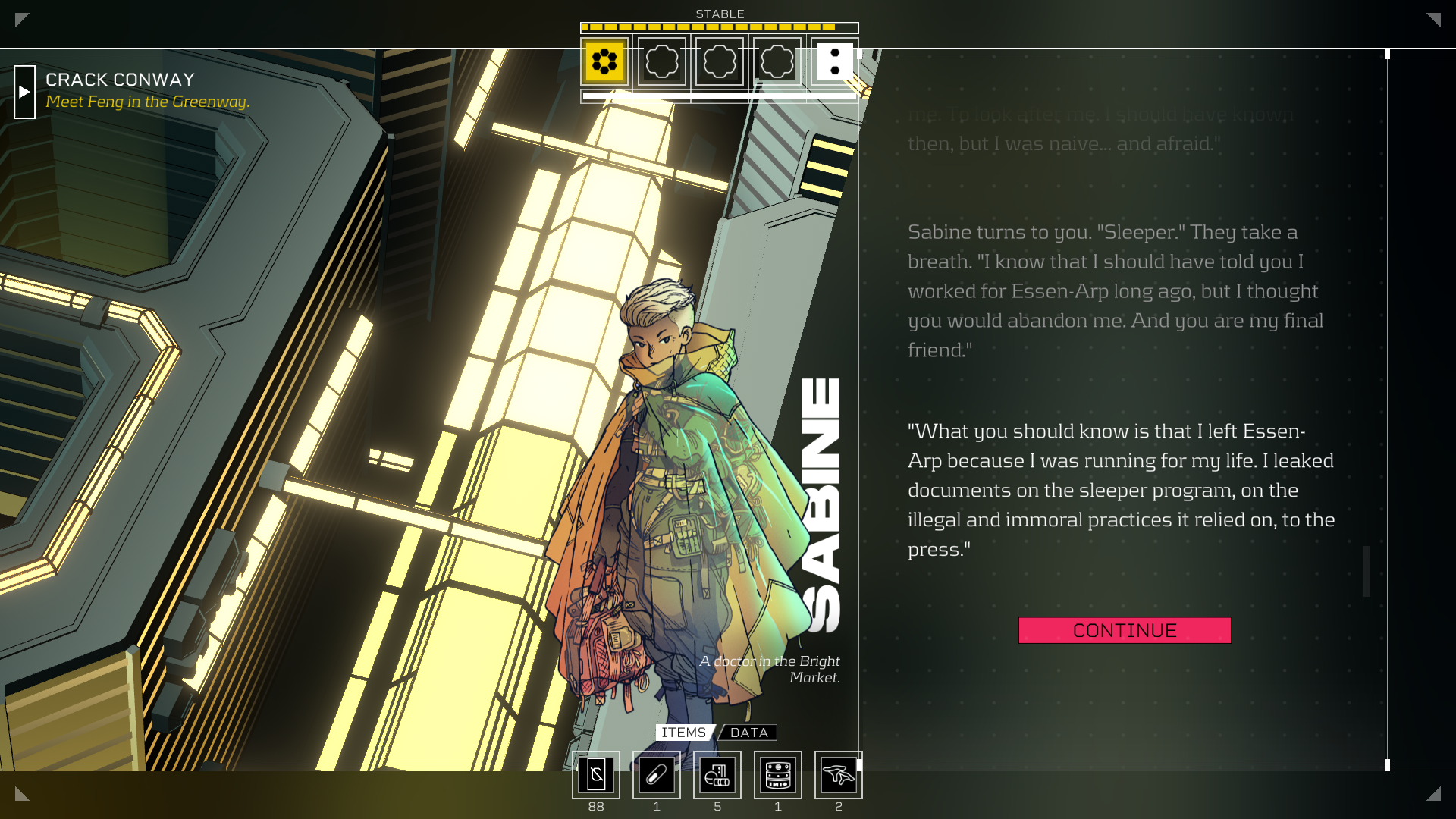
Entity Unknown
Life aboard this station quickly becomes more than survival—our Sleeper interacts with various characters on the station and becomes party to plots, subplots, and events that make up the exquisite tapestry of life between the girders and artificial gravity. Citizen Sleeper is ontologically impressive because of how finely it walks the line between complete narrative experience and single player TTRPG; what is present here is wrapped up in prose strong enough to land itself at the mark of any great science fiction novella. Gareth Damian Martin has outdone themselves with their eclectic blend of tried and true hard science fiction tropes and completely imaginative and poignant humanism.
The melancholy present in Citizen Sleeper does not owe itself completely to the trappings of space station survival—this is simply good storytelling.
Gameplay in Citizen Sleeper is efficient, simple, and completely addictive. Each "Cycle" (resting period) you are refreshed with six random d6 dice. Each die is then inserted into events on nodes that are spread throughout the station, performing operative tasks such as odd jobs or investigations. Jobs are awarded "chits" that function as currency for buying food or precious resources, though there is little here in the way of resource management. You need to keep your Sleeper going by maintaining their energy levels, and there are only two major health resources that make or break the experience. The tougher resource is the energy bar above your dice, the one that determines how much life the Sleeper has in them. As this bar depletes, so too does the dice. It's imperative to keep this par as high as possible so that you begin every Cycle with a full spread of six dice, enabling the Sleeper to perform crucial tasks throughout the day.
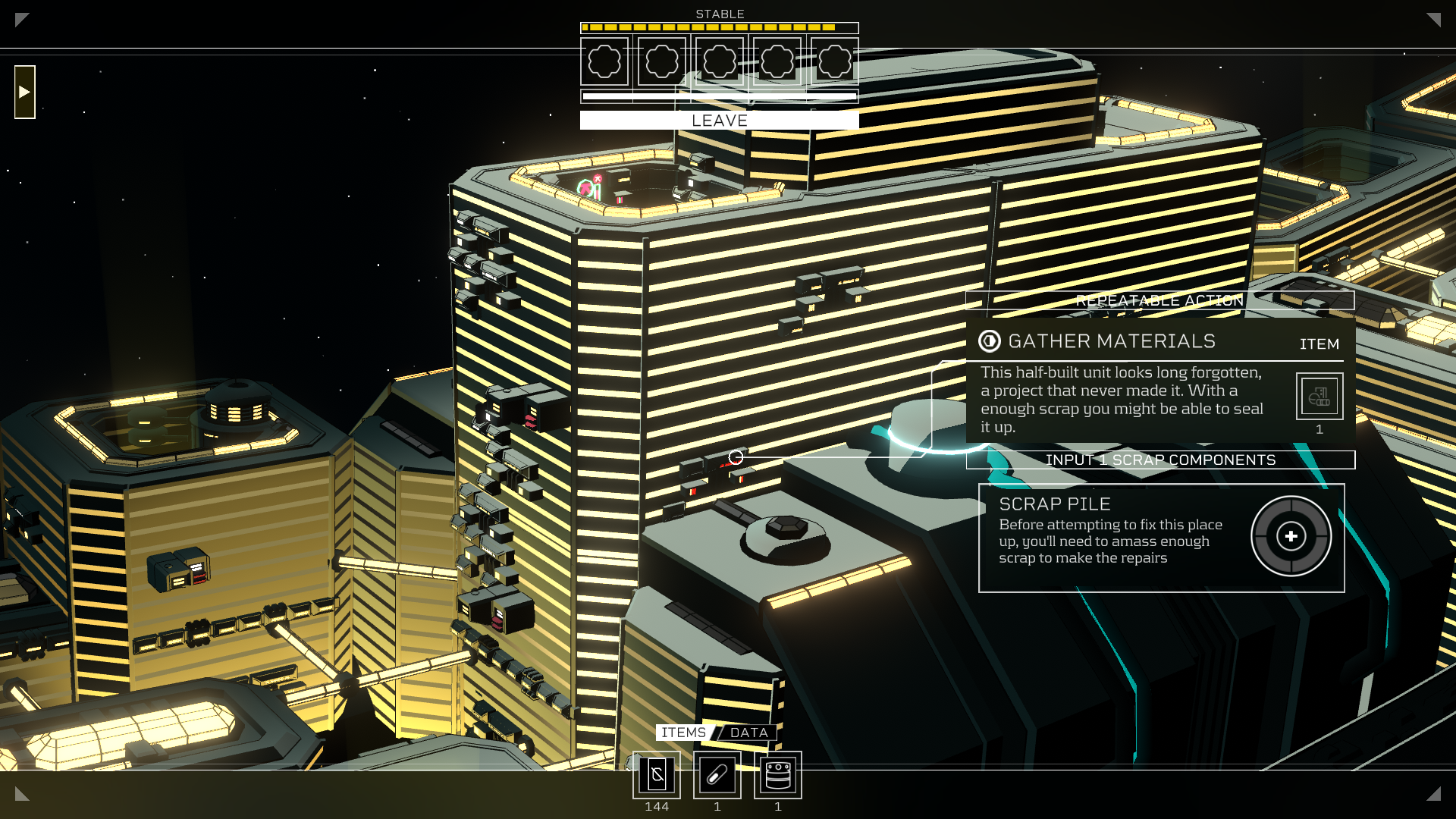
At its start, Citizen Sleeper feels initially overwhelming, but the groove is met quickly once the player understands the basic intent of the game. Do jobs, earn chits, talk to folks, maintain energy and food levels. Once this is accomplished and understood, the gameplay is made up of juggling tasks per Cycle, wherein you are often rewarded with new conversations, additional tasks, greater resources, and narrative revelations. Undoubtedly the strongest aspect of Citizen Sleeper is its narration, which is equally straightforward and beautiful. I was consistently taken aback by the deep level of self-awareness presented in the game, and by how masterfully it wove together my absolute favorite points of various science fiction stories into its own completely recognizable tale.
Because of its short runtime, it's worth playing Citizen Sleeper multiple times—the narrative beats I discovered on my second playthrough were far better than those of the first.
Stranger In A Strange Land
A host of characters struggle to make it through each daily Cycle aboard this station: a father desperately works to earn enough chits to board a shuttle to a better life, a doctor tries to heal patients beneath the weight of a pharmaceutical eye, a botanist yearns to rediscover a lost species of mushroom, a sentient vending machine searches for a way to access the virtual depths of the labyrinthine underbelly while chased by the ephemeral spirits of abandoned programs. All of this happens aboard Erlin’s Eye, an endlessly-spinning circular space station that's fraught with intrigue, evil corporations, poor families, and lost causes. While Citizen Sleeper's great questions is ultimately balanced on the nature of artificial reality and emulated consciousness, it spends most of its time showcasing hardworking folks that are trying to run from the past and repair the future.
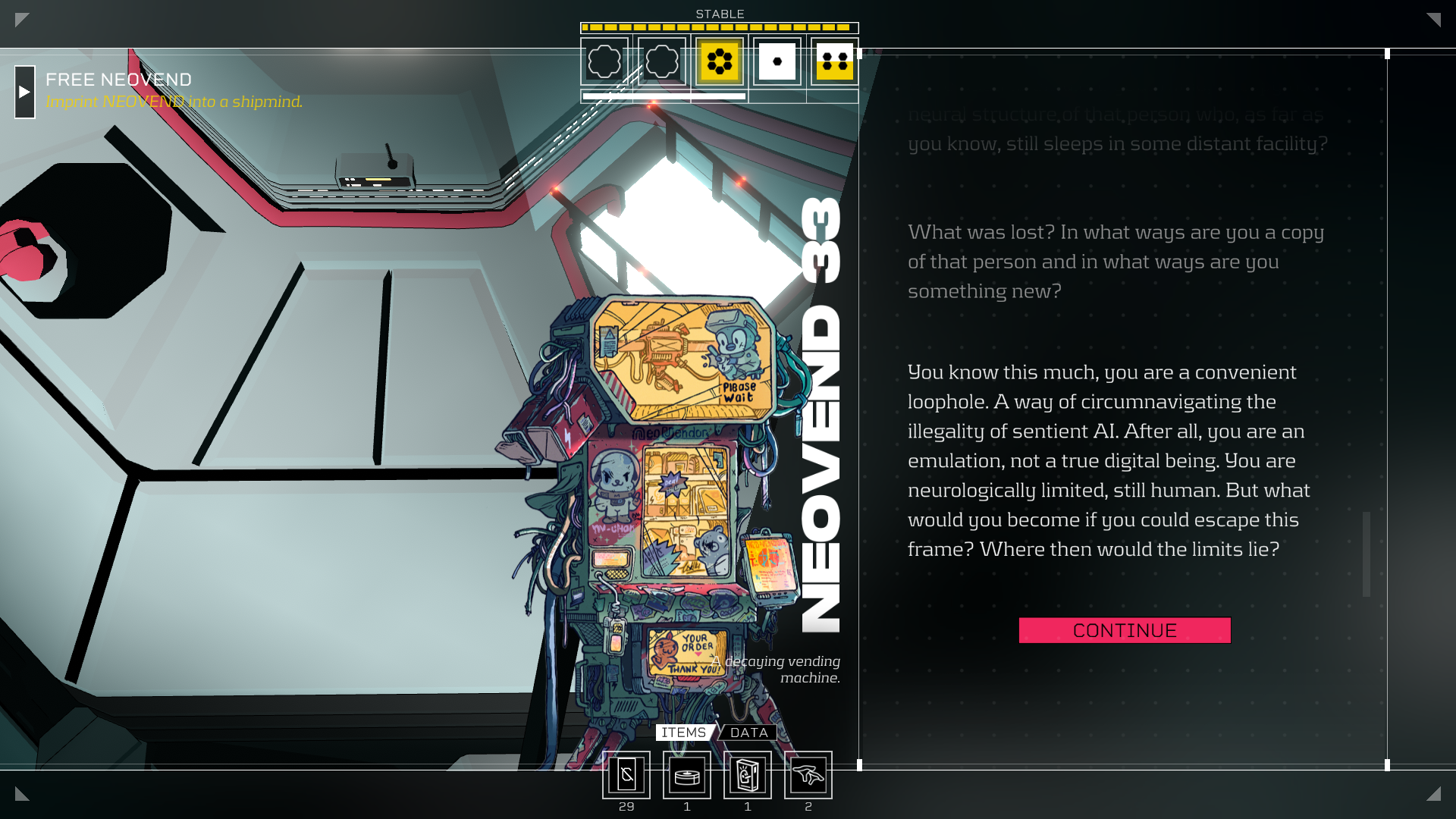
The dialogue here is presented in simple visual novel style, with characters represented by unmoving pieces of art as their struggles scroll by in loops of text. While there are a few critical missions that are dictated by the passage of time, much of Citizen Sleeper is spent exploring and reading. The blend of point and click narrative and tabletop game is almost evenly split, and dice rolls never feel unfair or obstructive. Stats and abilities are simple, and the three "Classes" that the player can choose for their Sleeper only really govern what happens in the first hour or two of the game. Additional playthroughs are streamlined by a working knowledge of the game's expectations and narrative rollout, meaning that if you see one ending the first time it's a fairly simple feat to buzz through to the next one. While my initial file focused primarily on just a couple of characters, I was able to juggle the plights of more than half a dozen citizens of the Eye on my second. Both times the game provided me with incredible satisfying prose and philosophical quandaries to chew on, about capitalism, indentured servitude, greed, hard work, and the meaning of life.
Citizen Sleeper is a revelatory adventure that should not be missed. It's available on GamePass, as well as a host of other modern systems. It feels like it belongs to a new wealth of storytelling—Disco Elysium, NORCO, and Kentucky Route Zero have a fresh cousin that shows us the future of video games when polished writing and stellar characters are placed at the forefront of the experience.
